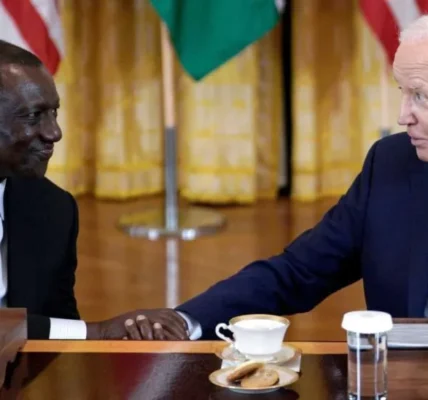Rioters face being charged with terrorism offences as public disorder increases across the UK

Rioters responsible for a public order crisis across Britain face being charged with terror offences, Britain’s top prosecutor has warned.
Stephen Parkinson, the director of public prosecutions, said his team would use every legal power to jail those behind the disorder, and that terror legislation was already being used in one case. He spoke out amid fears that up to 30 far right rallies are planned across the country over the next 24 hours.

Senior police sources have admitted the “outlook is bad”, but insisted they were “ready to respond”.
More than 400 people have already been arrested in connection with the violence and disorder sweeping Britain.
Many more arrests are expected in the coming days.
The possibility of rioters facing terrorism charges came as the country braced for another day of unrest, with more than 6,000 specialist riot officers on standby amid warnings that far-right groups are planning to target at least 39 immigration centres across Britain.

Mr Parkinson told the BBC: “There are sentencing guidelines which indicate that many people who have been caught up in this disorder will face immediate imprisonment. There should be no doubt about that. They are going to prison.
“We are willing to look at terrorism offences. I’m aware of at least one instance where that is happening.
“Where you have organised groups planning activity for the purposes of advancing an ideology… planning really, really serious disruption – then yes, we will consider terrorism offences.”
He also said it is “deeply disturbing” to see children as young as 11 taking part in riots as he warned them they could face lifelong consequences for doing so.
Immigration lawyers have also said they fear being attacked after their workplaces were on a list of offices circulated on the social media site Telegram.
Lawyers told the BBC that they had been advised by police to work from home, board up office windows and install fireproof letterboxes.
But one said she would not be cowed by the threats, saying: “No-one is going to intimidate me.”
The list was initially published on the Telegram messaging app along with the phrase “no more immigration” and other anti-migration sentiment, and has been shared thousands of times.
The Telegram group was created last week, hours after the Southport attack, and grew to 15,000 members by Monday night. The message has since been reposted many more times.
It follows disorder in many UK towns and cities over the last week, fuelled by a false rumour spread online that the Southport attack suspect was an asylum seeker.

One immigration lawyer on the list told the BBC she had been repeatedly threatened and has had to take her website down and cancel all her face-to-face appointments.
She said: “On Monday I started getting the messages: ‘You’re on a hitlist.’
“I’m a migrant. I’ve come here and tried to integrate; I’ve built my business and raised my family.
“People have been calling up my office to threaten and insult me. I’m just trying to do my job.
“I’ve fought injustice all my life – no-one is going to intimidate me.”
Another said he had been reassured by the police response, but had removed staff details from his website and boarded up office windows.
“It’s surreal, nothing like this has ever happened before, we don’t even cover asylum seekers,” he said.
“There’s some really stupid people out there, making leaps of logic from what happened in Southport to immigration advisers.”
The Law Society has been supporting the solicitors named on the list.
“They are worried about themselves, their staff and also their clients – who are under threat because they [lawyers] are seeing and speaking to them in asylum hotels,” its president Nick Emmerson said.
“There is a real and specific threat to named firms with their addresses being circulated on social media.
“It’s a very difficult moment, large numbers of firms are affected and it’s after quite a few years where immigration lawyers have been attacked for doing their jobs.”
He said it was reassuring that every lawyer reported being supported by police but added “there isn’t much we can really advise except don’t go to work and don’t meet clients. But how long are we meant to advise people to do that?”

Meanwhile the populist wing MP Nigel Farage has denied stoking the violent disorder seen across England and Northern Ireland following last week’s killings of three children in Southport which sparked the violence.
The Reform UK leader has defended asking questions about the background of a 17-year-old suspect who appeared in court last week charged with murder and attempted murder.
Farage took to X in the hours after the attack and questioned whether the attacker was known to the police. “Some reports suggest the attacker was known to the security services,” Farage said at the time.
Speaking to LBC’s Tom Swarbrick, Mr Farage refused to apologise for sharing this suggestion, which some claim has fuelled the riots.
He said: “I condemn all acts of political violence,” he said, calling for those taking part in the riots to stop.
“At no point in the last 30 years have I ever encouraged political violence.”
“I have nothing to do with any form of street violence.”
Mr Farage refused to accept his post may have helped legitimise the disorder.
He continued: “I asked a very simple question, was this man known to the security services. I could have said some reports suggest he was an active muslim, I did none of those things.”



































































































































































































































































































